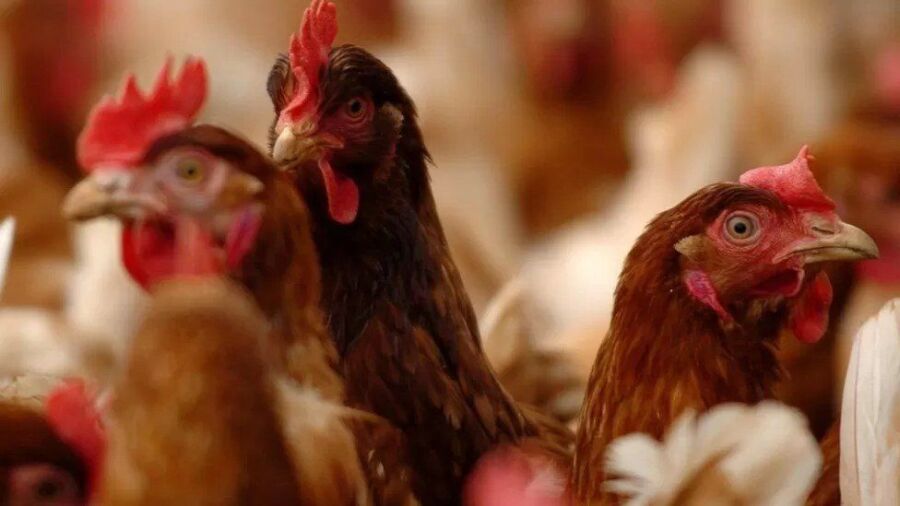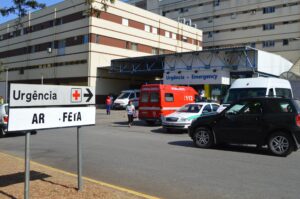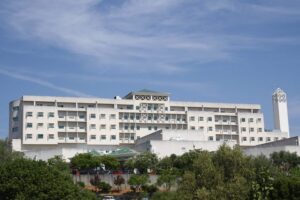President of public health society, and former director of health, warn of new epidemic/ pandemic
Five years after the first cases of the coronavirus that causes Covid-19 were confirmed in Portugal, two Portuguese experts have been giving their thoughts on new threats on the horizon.
Public Health specialist Francisco George is worried about a possible virulent mutation of the H5N1 (bird) flu virus, that may make the jump to affecting humans; former director of health Graça Freitas believes: “We are definitely going to have another pandemic” – but this time, she says, largely due to the results of policies during Covid, things will be “a great deal more complex, rapid, noisy and with a significant increase in social fractures”, particularly when it comes to questions like confinement (lockdowns) and vaccination.
First to Francisco George – himself a former director of health. He tells Lusa: “We have to be prepared now, more than ever, for new phenomena. There are threats on the horizon (…) the H5 flu virus, which is circulating mainly in birds and cattle, (…) including dairy cows”.
Earlier this month, minister of agriculture José Manuel Fernandes said Portugal had five domestic and four wild outbreaks of bird flu.
According to Francisco George, there is a danger in aviaries and cattle farms, where there is contact with humans, but it has been kept under surveillance. If cases of human infection do take place, surveillance measures will have to make way for ‘taking immediate action’.
But George did not use the word ‘pandemic’ – favouring more the idea of localised epidemics, which would need strict control.
The first outbreak of avian influenza caused by H5N1 occurred in Hong Kong in 1997 and was controlled by the mass culling of 1.5 million domestic birds.
A new wave of outbreaks began in 2003, and since 2015, the flu has affected more than 60 species of mammals, including dogs, cats, and pigs. Wild birds carry the virus and have infected sea lions in South America and mink in Europe.
Between October 2024 and January this year, more than 840 disease outbreaks were detected in Europe, mainly in Hungary and Italy.
Transmission of the virus to humans doesn’t happen easily, but when it does, the infection can lead to a serious clinical condition, says Lusa. (The fear of a mutation of H5N1 appears to have originated from the World Health Organisation (WHO), an organisation that has been pushing in vain for a pandemic treaty since the Covid crisis.) Nonetheless, in the first few weeks of this year, two people have been reported to have died from bird flu – one in the United States and the other in Cambodia.
Graça Freitas does not appear to be fixated on bird flu being the ‘greatest threat’ on the horizon, however: in her view, the greatest threat is the certainty of a new pandemic, in which combat “will not be perfect.
“It’s impossible, not least because the world is much more complex and there are many more sources of true and untrue information”, she tells her interviewers.
Lusa’s report also takes on the opinions of ‘constitutionalists’ who lament the fact that the country “is not prepared juridically for a new pandemic” as no new laws were put in place (many will say ‘thankfully’) to further limit people’s rights and freedoms in the event of a public health emergency.
“‘Before the pandemic, there was total unpreparedness, a total inadequacy of the laws for a situation of this kind, and today we are in the same situation,” Jorge Reis Novais, a professor at the Faculty of Law of the University of Lisbon, explains, stressing that both the Constitution and Portuguese legislation remain inadequate to deal with a pandemic situation.
“We did what is usually done in Portugal: at the time, we talk, we see the shortcomings, we point out the problems, we commit inconstitutionalities – as both the President of the Republic and the government did – and then everything remains the same…” he said.
There were moves to start limiting people’s freedoms – to the extent that they could be forcibly confined, even if perfectly healthy, on the say-so of authorities, but due to various political upheavals these never got to the debating stage in parliament.



















